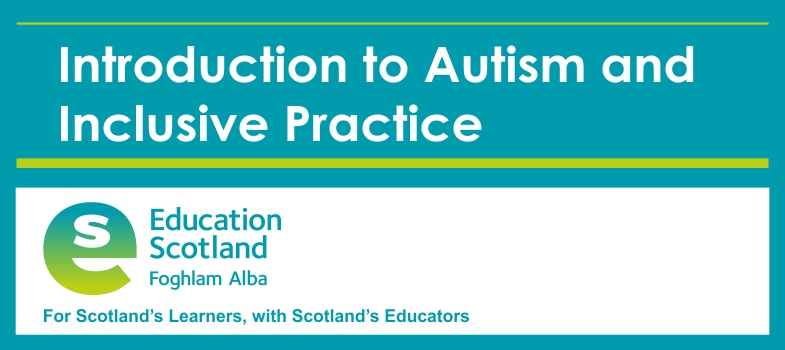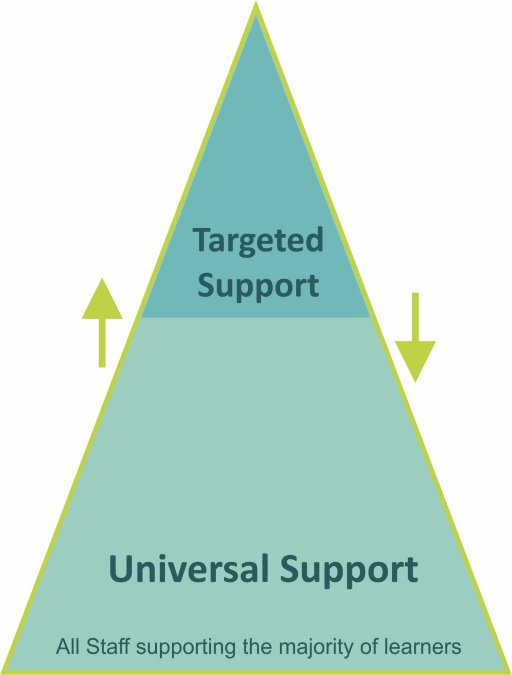4.3 Supporting learners – staged levels of intervention
In Scottish schools, the staged intervention is used as a means of identification, assessment, planning, recording and review to meet the learning needs of children and young people, including autistic learners. Staged intervention:
- provides a solution-focused approach to meeting needs at the earliest opportunity and with the least intrusive level of intervention
- involves the child, parents/carers, school staff and, at some levels, other professionals, all working in partnership to get it right for every child.
Staged intervention is designed to be flexible and allows for movement between stages depending on progress. There are variations between local authorities regarding the number of stages within their process
Universal support
Universal support starts with the ethos, climate and relationships within every learning environment. It is the responsibility of all practitioners to take a child-centred approach that promotes and supports wellbeing, inclusion equality and fairness. The entitlement to universal support for all children and young people is provided from within the existing pre-school and school settings.
An environment which is caring, inclusive, fair and focused on delivering learning to meet individual needs will encourage all children and young people to strive to meet their learning potential. Every child and young person is entitled to support to enable them to gain as much as possible from the opportunities which Curriculum for Excellence can provide. When a child or young person may require some additional support, this is initially the responsibility of the classroom teacher. The majority of children and young people’s needs are met through universal support.
Some examples of universal support are below. This list is not exhaustive.
- personalised learning plans
- literacy, numeracy or health and wellbeing support
- enhanced transition – macro and micro
- use of ICT e.g. digital learning and teaching resources such as digital course material and SQA exams
- quiet spaces
- visual timetables and supports.
Targeted support
Children and young people can benefit from additional or targeted support, tailored to their individual circumstances. This could be at any point on their learning journey.
This targeted support is any focused support that children or young people may require for short or longer periods of time, in order to help them overcome barriers to learning or to ensure progress in learning.
Targeted support is usually, but not exclusively, coordinated and provided by staff with additional training and expertise through a staged intervention process. This may be by staff other than the class teacher and outside the pre-school or school setting, but within education services.
Some examples of targeted support are below. This list is not exhaustive.
- higher attaining children (ensuring progression)
- bereavement peer support group
- input from Allied Health Professionals e.g. Speech and Language Therapist
- trauma informed interventions designed for a care experienced child/young person
- complex needs e.g. sessions in a sensory room.
4.2 Identification of autism

